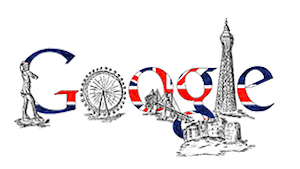
Suspicion of Google's outside influence on copyright policy isn't just limited to the US, where supporters of the Stop Online Piracy Act have bashed the company for months and where critics have charged the Obama administration is too close to the giant advertising company.
In the UK, members of parliament this week debated the same issue. Pete Wishart, a Scottish MP from Perth and a member of the only "parliamentary rock band" MP4, took to the floor of the Commons on Tuesday to take on both digital rights groups and companies like Google.
Those who now have the Government’s ear are not particularly helpful. Some have become self-serving protectionists and are telling the Government their views. Self-appointed digital rights champions seem to rule the roost when informing Government opinion, and everything that the Government do is predicated on the support for and desire to please massive multi-billion dollar west-coast United States companies such as Google.
I do not know why Google has the Government’s ear, but I do not contend that it has a particular lobbying influence inside No. 10. I do not even suggest that Steve Hilton, the special policy adviser, has a special relationship with Google. I do not suggest such things or contend them today. For some reason, however, Google has the ear of the Government, and it was no surprise that, when Ian Hargreaves initiated his review [of copyright policy], many people called it the Google review.
Eric Joyce, MP for Falkirk, disagreed with this characterization of the whole debate.
There is a general trend in debates such as this to laud the importance of intellectual property, and, sometimes—as at the beginning of the speech of the hon. Member for Perth and North Perthshire—to see the counter-argument as a matter of big bad Google lobbying No. 10 in a somehow illegitimate way. I have no idea what the hon. Gentleman is referring to in saying that kind of stuff about special contacts inside Downing street....
It is a fact that the internet is a fantastic copying machine, and that is what happens. If we want to criminalise everyone who does it, we are on a hiding to nothing. We are criminalising everyone’s children to start with.
Kevin Brennan, MP for Cardiff West, agreed the criminalizing huge numbers of children was a problem, but he turned the focus back to Google.
Is not the issue that powerful business interests effectively direct those who are searching for something on the internet to illegal sites that do not just copy the odd thing, but are factories for ripping off people’s intellectual property rights; and that if companies such as Google were more responsible and had some corporate social responsibility they would not be directing people, effectively, to the illegal end of the market?...
I have just googled “Empire State of Mind” by Alicia Keys and Jay-Z, and the first five results offered a free download of that track on Google. Why does a Google search not direct people to a legal site where they could purchase the track?
Joyce wasn't about to agree that Google should in fact police the Internet. In his view, Google is simply showing the Internet as it is and should be allowed to do that. Attempts at strictly controlling the Internet are hallmarks of authoritarian regimes, he added.
The problem is that that is the way it is. In due course, industries will have to adapt to that way. The fact is that things will continue to be copied and industries with current business models will have to adjust. Of course, we have to do what we can within the realms of possibility to protect those industries but, inevitably, there will be a degree of evolution. Each time we have such a debate, the overwhelmingly dominant argument is for the protection of current business models, but people in those industries must know that things have to change.
Things will continue to be copied, and I would not advocate the degree of censorship of the internet that my hon. Friend seems to do.
But Brennan said he wasn't talking about site blocking or search engine removal; he just wants legal sites to come first.
I am simply saying that the corporate social responsibility of a large corporation would surely require it to ensure that its algorithms and systems generate a search that directs people to legal sites. Such corporations are perfectly capable of doing that, even if illegal searches appear way down in the list of pages. The fact that those sites are listed at the top—often in the paid advertising part of a Google search, so contributing to Google’s profitability—does not show corporate social responsibility.
Google has been controversial in the UK for several years, due to its perceived political power. When Prime Minister David Cameron announced a copyright review in 2010, he noted that "the founders of Google have said they could never have started their company in Britain... So I can announce today that we are reviewing our IP laws, to see if we can make them fit for the internet age. I want to encourage the sort of creative innovation that exists in America."
Last year, the tabloid Daily Mail asked, "Why is No.10 in thrall to this parasitic monster?"
"Google has become a global predator ruthlessly gobbling up potential rivals such as YouTube and 'stealing' the creative work of writers, film makers and the music industry," the paper warned.
And yet, despite the claims that the government listens only to Google and hippies when it comes to copyright, the government remains keen on more copyright enforcement. As the Minister of State, Department for Business, Innovation and Skills put it a few minutes after the debate over Google, "We are closely considering whether to block access to websites that infringe copyright... An announcement is imminent, and I think that it will be welcomed."
reader comments
38